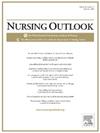Pandemic prevention competencies of long-term care institution workers: A retrospective national survey in Taiwan
IF 3.7
2区 医学
Q1 NURSING
引用次数: 0
Abstract
Background
Long-term care institutions are especially vulnerable in pandemics. Despite Taiwan’s proximity to COVID-19′s epicenter, the country demonstrated effective pandemic management.
Purpose
This study assessed pandemic prevention competencies of Taiwan’s long-term care workers, identifying key influencing factors.
Methods
A cross-sectional survey was conducted, with assessments on competencies via the Emerging Infectious Disease Prevention Competencies Scale.
Discussion
A total of 433 valid responses were obtained. Competencies were rated strong (mean 65.2/81), with predictors including sense of purpose, perceived supervisor support, alignment with institutional culture, job satisfaction, and regular pandemic prevention drills. Findings underscore the role of a supportive environment in fostering pandemic competencies and highlight the importance of strengthening problem-solving capacities to enhance preparedness.
Conclusion
Investing in workforce preparedness, leadership engagement, and institutional culture-building is essential for strengthening long-term care resilience to future pandemics worldwide.
台湾长期照护机构工作人员流行病预防能力之回溯性调查
长期护理机构在大流行病中尤其脆弱。尽管台湾距离新冠肺炎的震中很近,但台湾表现出了有效的疫情管理。目的本研究评估台湾长期护理员的防疫能力,找出影响因素。方法采用横断面调查方法,通过新发传染病预防能力量表对能力进行评估。共获得433份有效回复。能力被评为强(平均65.2/81),预测因素包括目标感、感知到的主管支持、与机构文化的一致性、工作满意度和定期的流行病预防演习。调查结果强调了支持性环境在培养大流行病能力方面的作用,并强调了加强解决问题能力以加强防范的重要性。投资于劳动力准备、领导参与和机构文化建设,对于加强对未来全球流行病的长期护理复原力至关重要。
本文章由计算机程序翻译,如有差异,请以英文原文为准。
求助全文
约1分钟内获得全文
求助全文
来源期刊

Nursing Outlook
医学-护理
CiteScore
6.20
自引率
7.00%
发文量
109
审稿时长
25 days
期刊介绍:
Nursing Outlook, a bimonthly journal, provides innovative ideas for nursing leaders through peer-reviewed articles and timely reports. Each issue examines current issues and trends in nursing practice, education, and research, offering progressive solutions to the challenges facing the profession. Nursing Outlook is the official journal of the American Academy of Nursing and the Council for the Advancement of Nursing Science and supports their mission to serve the public and the nursing profession by advancing health policy and practice through the generation, synthesis, and dissemination of nursing knowledge. The journal is included in MEDLINE, CINAHL and the Journal Citation Reports published by Clarivate Analytics.
 求助内容:
求助内容: 应助结果提醒方式:
应助结果提醒方式:


